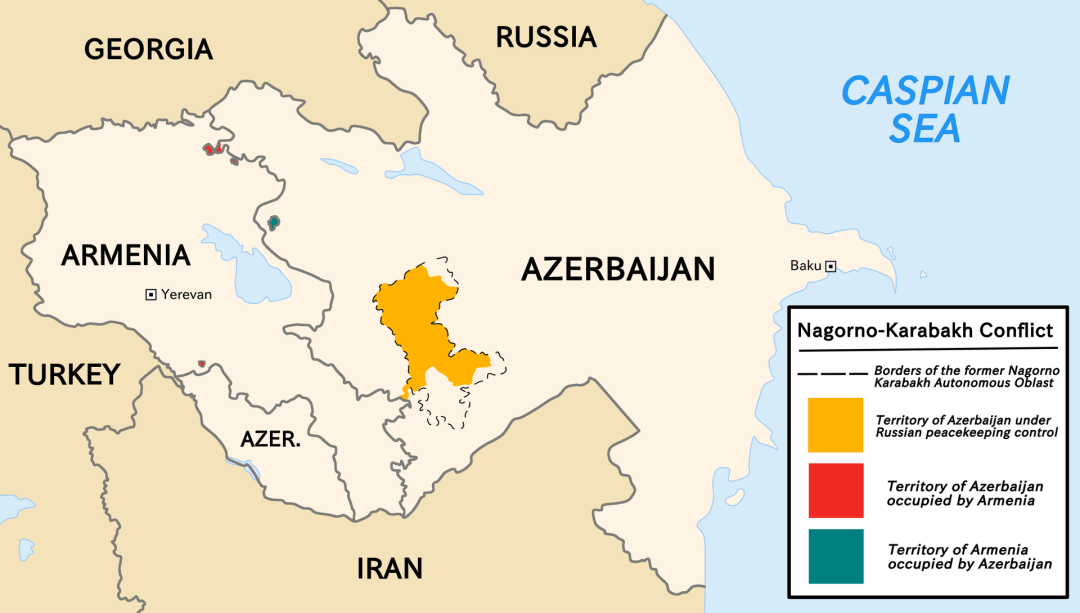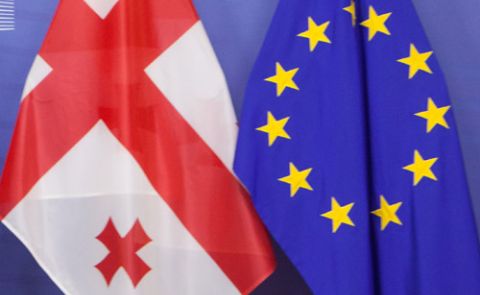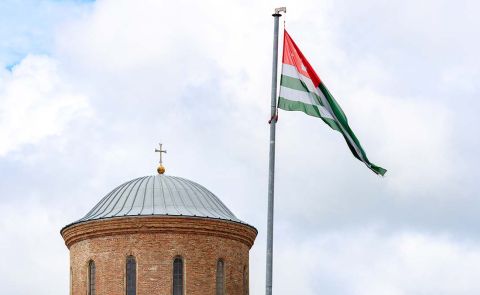
Nagorno-Karabakh: newest developments

On 11 February, the spokesperson of Russia’s Ministry of Foreign Affairs Maria Zakharova spoke on the issues of internally displaced persons and the exchange of prisoners following the signing of the trilateral statement.
Zakharova cited the statement, which said that internally displaced persons and refugees should return to the territory of Nagorno-Karabakh and adjacent areas under the control and direction of the UN High Commissioner for Refugees. "At present, we are observing a pretty intensive process of the return of Armenians who had previously left their homes due to the well-known events of last autumn. Our position is based on the fact that this paragraph of the trilateral statement applies to everyone who was forced to leave their homes," she explained.
The Russian MFA spokesperson also gave an update on the process of exchange of the prisoners of war. “Exchange of war prisoners has been realised with the mediation of the commander of the Russian peacekeeping forces a while ago. One Azerbaijani and 5 Armenian prisoners have been returned to their homes. Generally, we hope that the optimal solution of this problem is the “everyone to everyone” principle. This is our position and Russia’s President (Vladimir Putin) and Foreign Minister (Sergey Lavrov) have announced this,” she said.
Meanwhile, in the Armenian parliament heated debates took place following a document leak on the internet regarding the borders of the Syunik province of Armenia. Taren Simonyan from the opposition Bright Armenia party emphasised that the published document contains only the text and that it does not contain the signature of the Armenian side. “I do not know what power it has. Even if the current government signs it, it will… not only be an anti-state and anti-national act, but a document which, in fact, will be in gross violation of the law and will be deprived of legal force,” he said. Mikayel Melkumyan from the Prosperous Armenia opposition party said that the demarcation process was already taking place in the Syunik province and that he had already seen the Azerbaijani flag on the Goris-Chakaten motorway. “And if it was not done by agreement, then it turns out that the Azerbaijanis can go anywhere in Armenia. I just want to say that the policy of Armenia’s capitulation continues,” he stated.
Speaking on the situation in Syunik, it was also announced by Armenia’s National Security Service (NSS) that the media must now have a special permit to make reports on the border areas of the province. “As a former journalist, I am also interested in the latest statement of the NSS; I believe the NSS will provide an additional explanation. But, in fact, the logic of the given statement is based on the "do no harm" principle. It must proceed from the interests of the prisoners of war. We must do everything possible not to harm them. Free entry and exit will resume to Syunik at some point,” stated Sisak Gabrielyan from the ruling My Step faction. It should also be noted that a day earlier the Armenian government pledged to build or repair roads bypassing the Syunik province.
Discussions regarding relations with Turkey were also prominent within Armenian society. The spokesperson of Armenia’s MFA Anna Naghdalyan responded to the Armenian National Committee International’s statement, in which the committee criticised Armenia’s Foreign Minister Ara Ayvazyan, who said that “Turkey no longer had a reason to keep its border with Armenia closed.” Naghdalyan noted that the Armenian National Committee International's concern was based on the comments made by Ayvazyan during the question and answer session with the deputies in the National Assembly. In her words, these comments were made outside the general context and in no way reflect Armenia's assessment and approaches to Turkey's involvement in the region. “Armenia has in no way revised its assessment of Turkey's destructive involvement in the region, and these concerns were clearly mentioned in the Q&A session, in particular, regarding the holding of joint Turkish-Azerbaijani military exercises near the border with Armenia. At the same time, the Armenian Foreign Minister touched upon Turkey's policy of the illegal blockade of Armenia, saying that currently there is not even that pretext, referring to which Turkey has kept its border with Armenia closed for decades,” Naghdalyan said.
Ayvazyan said the following during the Q&A session on 10 February: “Turkey, under pressure from the international community, must gradually return to the normal process. As you are aware, the blockade—the closure of the border—was the result of the Nagorno-Karabakh status quo, which has changed through the use of force. Turkey, therefore, no longer has any reason to keep its border with Armenia closed. At the moment, no process is underway, but Armenia and our diplomacy will make active efforts in order for a favourable environment to exist around us for strengthening Armenia’s security. I repeat that the security atmosphere contains many elements.”
See Also


BP Strengthens Presence in Azerbaijan’s Offshore Energy Sector

Netanyahu’s Letter to Aliyev: Mutual Trust, Solidarity Following Hamas Attacks, Facilitating Dialogue Between Israel and Türkiye

Azerbaijan Expands JF-17 Thunder Fighter Jet Order from 16 to 40 Units

EU Commissioner and NATO PA Warn Georgia Over Democratic Decline Amid Accession Challenges

